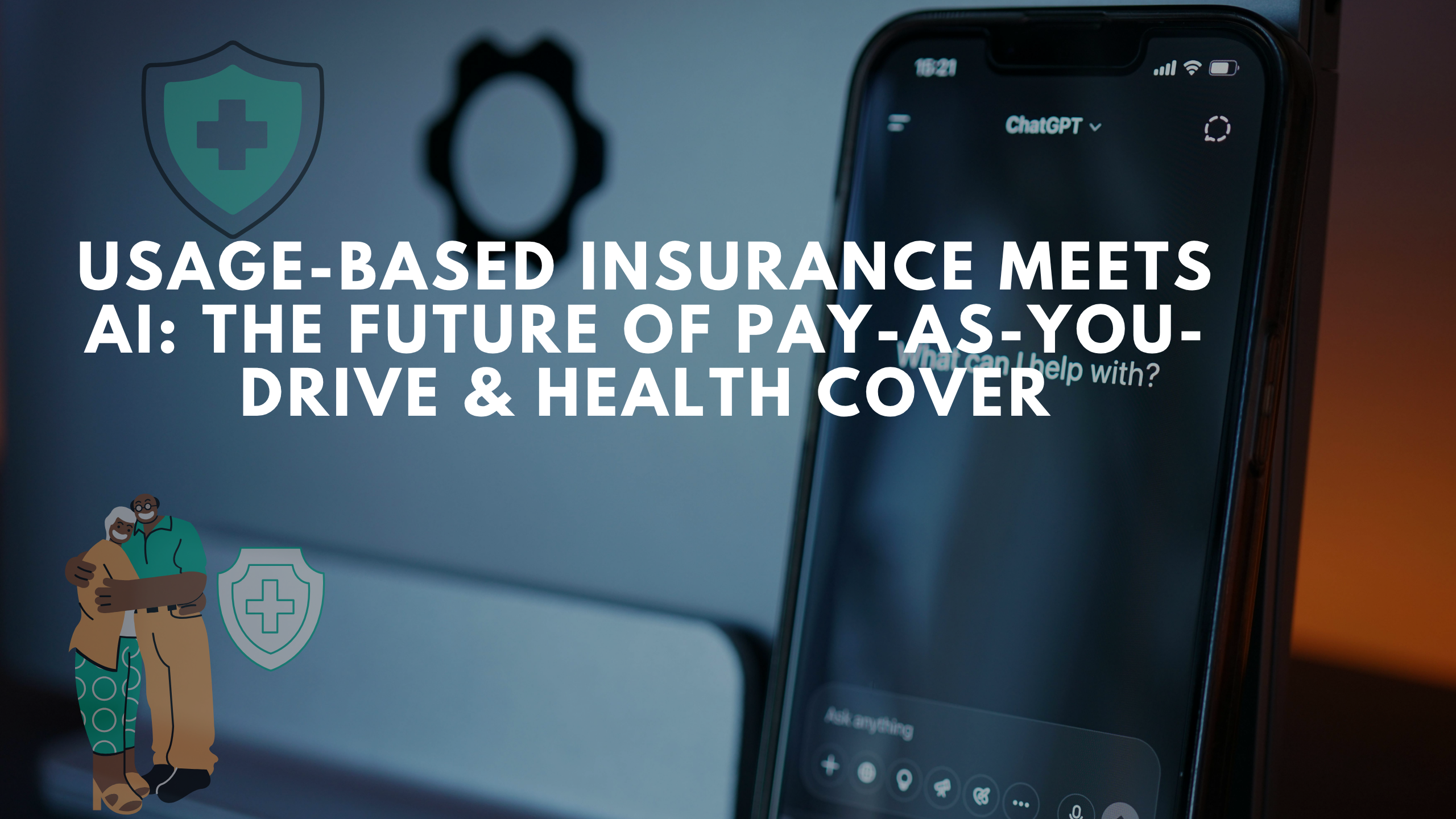The world of insurance is changing faster than ever. Traditional one-size-fits-all policies are being replaced by flexible, data-driven models that reward safer behavior and healthy lifestyles. This shift is powered by two forces: Usage-Based Insurance (UBI) and Artificial Intelligence (AI).
In 2025, insurers in the U.S., U.K., France, and Europe are using AI-powered systems to personalize premiums, analyze real-time behavior, and deliver fairer pricing. Whether you’re driving a car or tracking your daily steps, AI is reshaping how coverage and costs are determined.

Usage-Based Insurance is a model where the cost of your policy depends on how you actually use the insured asset — most often your car or your health data.
UBI relies on telematics devices or smartphone apps that track driving habits such as speed, distance, braking, and time of day. Drivers who maintain safe driving behaviors get lower premiums through Pay-As-You-Drive (PAYD) or Pay-How-You-Drive (PHYD) plans.
Wearables and fitness trackers collect data on heart rate, sleep, and activity levels. AI then analyzes this data to determine health-risk scores and reward healthy lifestyles with discounts or cashback.
While UBI depends on data, AI turns that data into actionable insights. Artificial Intelligence enables insurers to process millions of data points quickly and accurately, helping them set dynamic premiums and predict future risks.
Let’s explore how AI is reshaping both auto and health UBI models in 2025.
AI algorithms analyze telemetry data collected from vehicles in real time.
They evaluate speed, acceleration, harsh braking, weather, and even traffic conditions to calculate a personalized risk score for each driver.
For instance, if two people drive the same distance but one drives more safely, AI ensures that driver pays less — a fair and transparent system.
Machine-learning models predict future accident likelihoods based on behavior patterns.
This allows insurers to offer instant premium adjustments, or even coaching feedback through mobile apps to encourage safer driving habits.
AI detects inconsistencies between claim reports and telematics data. If a driver claims an accident at one location but the vehicle’s GPS shows otherwise, the system flags it instantly — reducing false claims and saving costs for everyone.
Wearables like Apple Watch, Fitbit, and medical IoT devices continuously collect health data.
AI analyzes metrics like heart rate, sleep cycles, and stress levels to assess risk in real time.
If your data shows a consistent pattern of physical activity and stable vitals, your insurer can automatically lower your premium or give loyalty rewards.
AI doesn’t just analyze — it recommends.
Using generative AI models, insurers now create custom health plans, offering diet suggestions, mental-wellness prompts, or exercise goals based on your unique profile.
AI can detect anomalies like irregular heartbeats or sedentary behavior, alerting both the user and insurer to potential health risks early.
This preventive approach saves lives — and money — by addressing conditions before they worsen.
AI ensures that responsible users — safe drivers or health-conscious individuals — pay only for what they use and how safely they behave.
Unlike traditional opaque pricing, AI-driven models clearly show how premiums are calculated, boosting customer trust and satisfaction.
Real-time data verification and automated claims processing significantly reduce fraud and administrative overhead.
Gamified dashboards, instant feedback, and reward systems keep users engaged and motivated to maintain safer or healthier lifestyles.
AI-driven UBI encourages eco-friendly habits like fuel-efficient driving and active commuting, supporting broader sustainability goals.
Across Europe and the United States, insurance companies are rapidly integrating AI-based UBI systems:
- United States: Auto giants like Progressive and Allstate are using AI telematics to reward safe drivers through real-time premium adjustments.
- United Kingdom: The FCA supports “fair-pricing AI,” promoting ethical algorithms for personalized insurance.
- France & Germany: Health insurers are partnering with tech companies to analyze wearable data for lifestyle-based discounts.
- Nordic Countries: Governments are even exploring national UBI frameworks linked to smart mobility and wellness programs.
By 2025, more than 65% of new car insurance policies in the U.S. and Europe include a usage-based option.
While AI-based usage-based insurance offers huge potential, there are still key challenges to address:
Continuous tracking of driving or health behavior raises questions about how insurers collect, store, and share data.
Strict compliance with GDPR in Europe and HIPAA in the U.S. is essential.
AI systems must avoid unfairly penalizing users due to biased data or incomplete profiles.
Transparent, explainable AI (XAI) is becoming the standard for responsible underwriting.
Legacy insurance platforms often struggle to integrate modern AI tools. Upgrading systems and training staff is critical for success.
Not every user is comfortable sharing personal data. Building awareness and trust through clear policies is key to wider adoption.
As we look ahead to 2026 and beyond, the combination of AI, IoT, and blockchain will push UBI to the next level.
Here’s what the future holds:
- AI-Based Smart Contracts: Blockchain-enabled policies that automatically adjust premiums based on verified data.
- Multi-Source Data Fusion: Integrating vehicle, wearable, and lifestyle data for complete risk modeling.
- Predictive Wellness Insurance: Policies that reward preventive health actions instead of post-treatment claims.
- Mobility as a Service (MaaS) Integration: Pay-per-use coverage embedded in ride-sharing and car-subscription platforms.
In the coming years, insurance will become as dynamic as the people it protects — instant, data-driven, and personalized.
The union of Usage-Based Insurance and Artificial Intelligence marks a new era of fairness, transparency, and personalization in the insurance industry.
AI turns raw data into insights, helping insurers price policies accurately while empowering customers to take control of their driving and health habits.
From reducing fraud to promoting wellness, AI-driven UBI is setting a new global standard for how insurance should work.